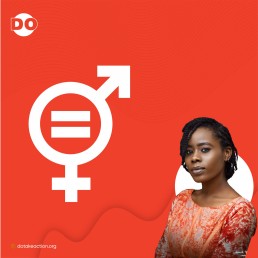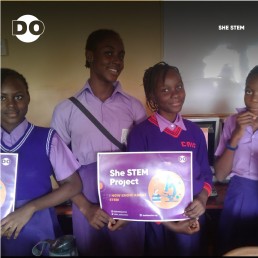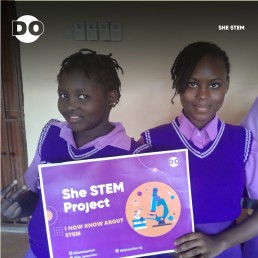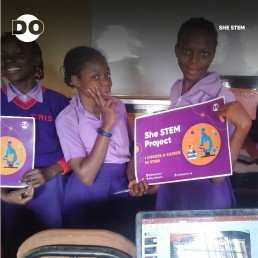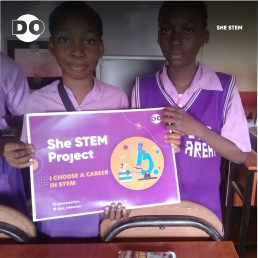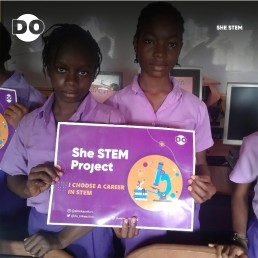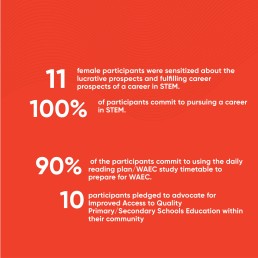THE NEED
Giving women equal opportunity to pursue — and succeed in — STEM careers helps to close the gender wage gap, improve women’s economic security, assure a diverse and competent STEM workforce, and avoid biases in these disciplines and the products and services they generate.
STEM careers are frequently perceived as masculine, and teachers and parents frequently undervalue girls’ arithmetic ability beginning in preschool. This is due to the fact that fewer women study and work in STEM areas, which tend to perpetuate rigid, exclusionary, male-dominated systems that are neither supportive of nor appealing to women and minorities. Girls, on the other hand, have fewer role models to encourage their interest in these disciplines, with few female scientists and engineers shown in books, media, or popular culture. In Africa, there are even fewer role models.
Women’s participation in tertiary institutions has risen from 46% in 1985 to 56% in 2017, assisting in the advancement of women’s labour market share, which has increased from 50.8 percent in 1985 to 52.5 percent in 2017 in countries belonging to the Organization for Economic Cooperation and Development. Gender equality in the workplace, on the other hand, is still a long way off. This labour gender divide is most pronounced in male-dominated fields with significant technology and mathematical component. According to the OECD, women make up only 19 percent of entrants into these programs at the postsecondary level.
34-year-old Uba Oluchukwu Francisca, a Grassroot Development Champion (GDC), saw this gap and decided to contribute her quota in closing it. Oluchukwu is a graduate of Economics from Anambra State University, Uli. Oluchukwu currently works as a Software data analyst – a proper STEM Girl role model. She is passionate about encouraging girls to pursue STEM careers.
To this end, she organised the She STEM project with DO-Take Action Team to sensitise young girls that STEM careers are not for boys alone. She launched the project under the Gender Equality And Women’s Empowerment/Women & Girls in STEM program; a program that conveys the lucrative prospects and fulfilling career prospects of a STEM career, and most importantly, encourages more young girls to pursue a career in STEM.
The project was carried out at Area1 Junior Secondary school, Area1. The details entailed the following;
- A presentation on She STEM: meaning of She STEM, statistics of people in stem related fields, careers in STEM
- Interactive session with participants on their preferred career choices in technology and computer programming
- Success stories of women who have made an impact in STEM
- Interactive Q/A session where participants asked questions and were given informed answers
- STEM assignments to be carried out before the next visit
In the course of the project, a minimum of 11 participants were sensitized about the lucrative prospects and fulfilling career prospects of a STEM career. The participants scored a high percentage on the Girls in STEM test and now know how to become a part of and to expand the Women in STEM’s contributions to national and continental developments across the globe. The participants pledged to advocate for female participation in STEM careers within their community, and commit to pursuing a career in STEM.
Oluchukwu wants to see more women in STEM careers, especially, Computer Science, and she took action on it. What action are you taking to challenge the status quo in your community?
If you enjoyed the story and would like to read more stories like this, sign up for our monthly newsletter to get notified of new stories.
Also, do well to follow our social media handles for more engaging and entertaining content on issues that affect YOU.
